03:49
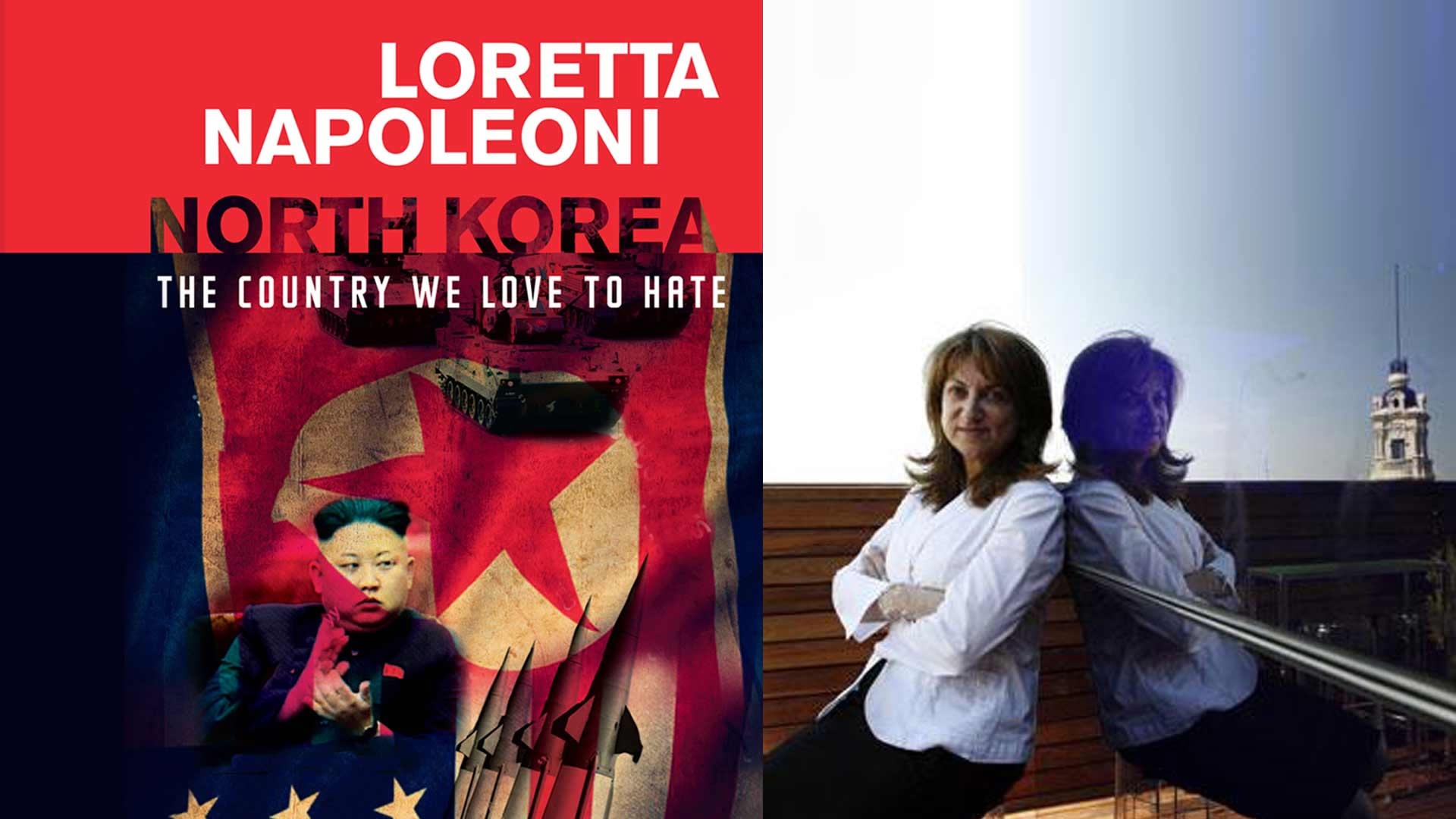
Less nuclear threat and more party animals?
The Democratic People's Republic of Korea (DPRK) is back in the international headlines – not for a missile launch or yet another nuclear test though. In fact, it is just the contrary.
DPRK leader Kim Jong Un announced a voluntary suspension on nuclear and missile tests on Saturday, just days ahead of his meeting with his Republic of Korea (ROK) counterpart Moon Jae-in, which will be followed by the much-anticipated encounter between Kim and US President Donald Trump next month.
Ahead of these key summits, Kim paid a historic visit to China last month at the invitation of President Xi Jinping, in what was the DPRK leader's first known foreign tour and meeting with a head of state since he took charge in 2011.
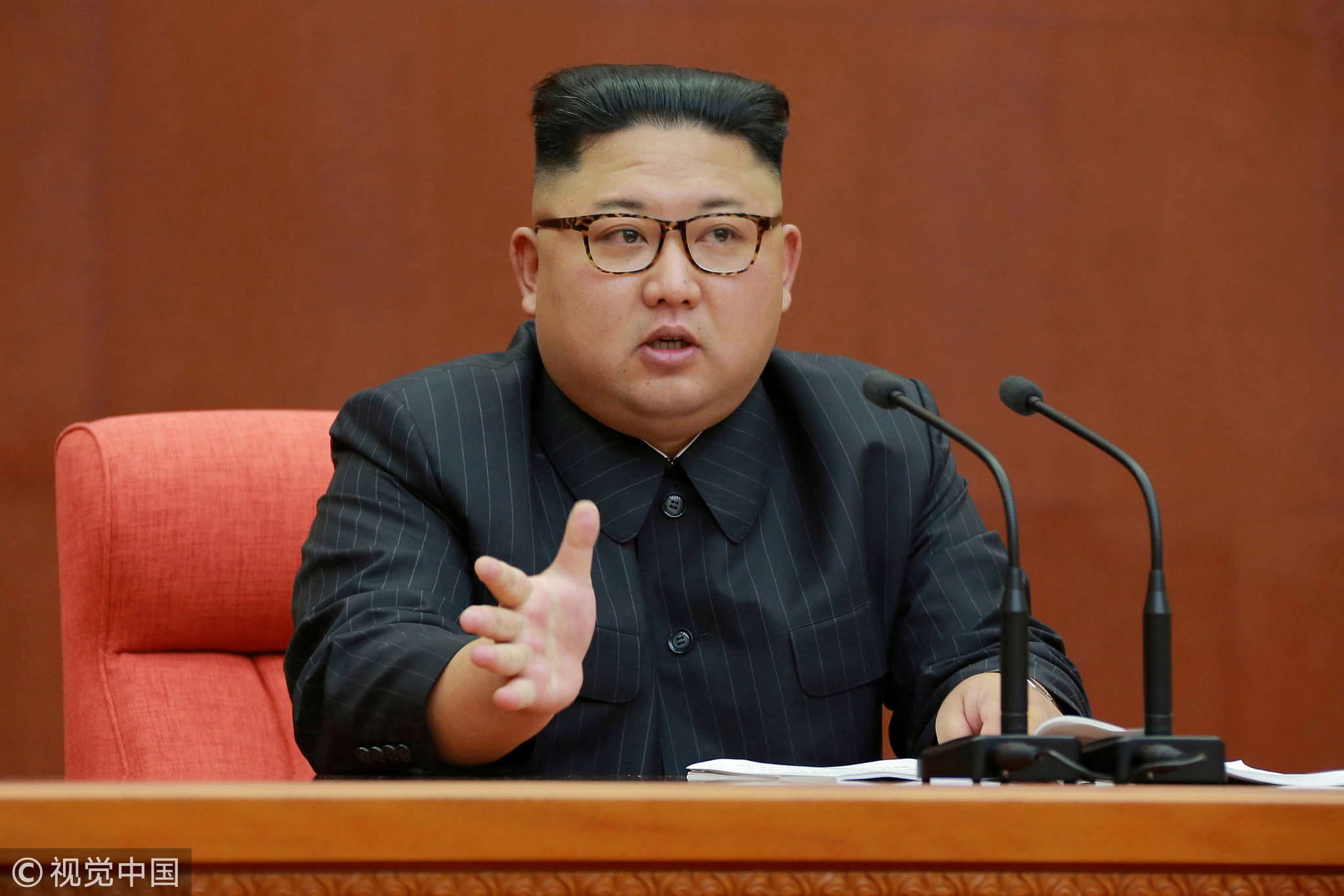
DPRK leader Kim Jong Un speaks during the Second Plenum of the 7th Central Committee of the Workers' Party of Korea (WPK) at the Kumsusan Palace of the Sun. / VCG Photo
DPRK leader Kim Jong Un speaks during the Second Plenum of the 7th Central Committee of the Workers' Party of Korea (WPK) at the Kumsusan Palace of the Sun. / VCG Photo
The groundbreaking possibility of the summits with both the ROK and the US was made possible with the unique diplomacy that Pyongyang initiated during the PyeongChang Winter Olympics held in the ROK in February. The “Olympics diplomacy,” as it has since come to be known as, has helped in shifting the international narrative on the DPRK in a very short period of time.
However, despite Trump predicting “tremendous success” from the upcoming talks, the Western anathema to the DPRK, or North Korea, doesn’t appear to be extinguished just yet.
We are often made to think of the DPRK singularly as a heavily militarized pariah nation – armed with missiles and nuclear weapons and led by a trigger-happy dictator – that poses a morbid threat to the world as we know it.
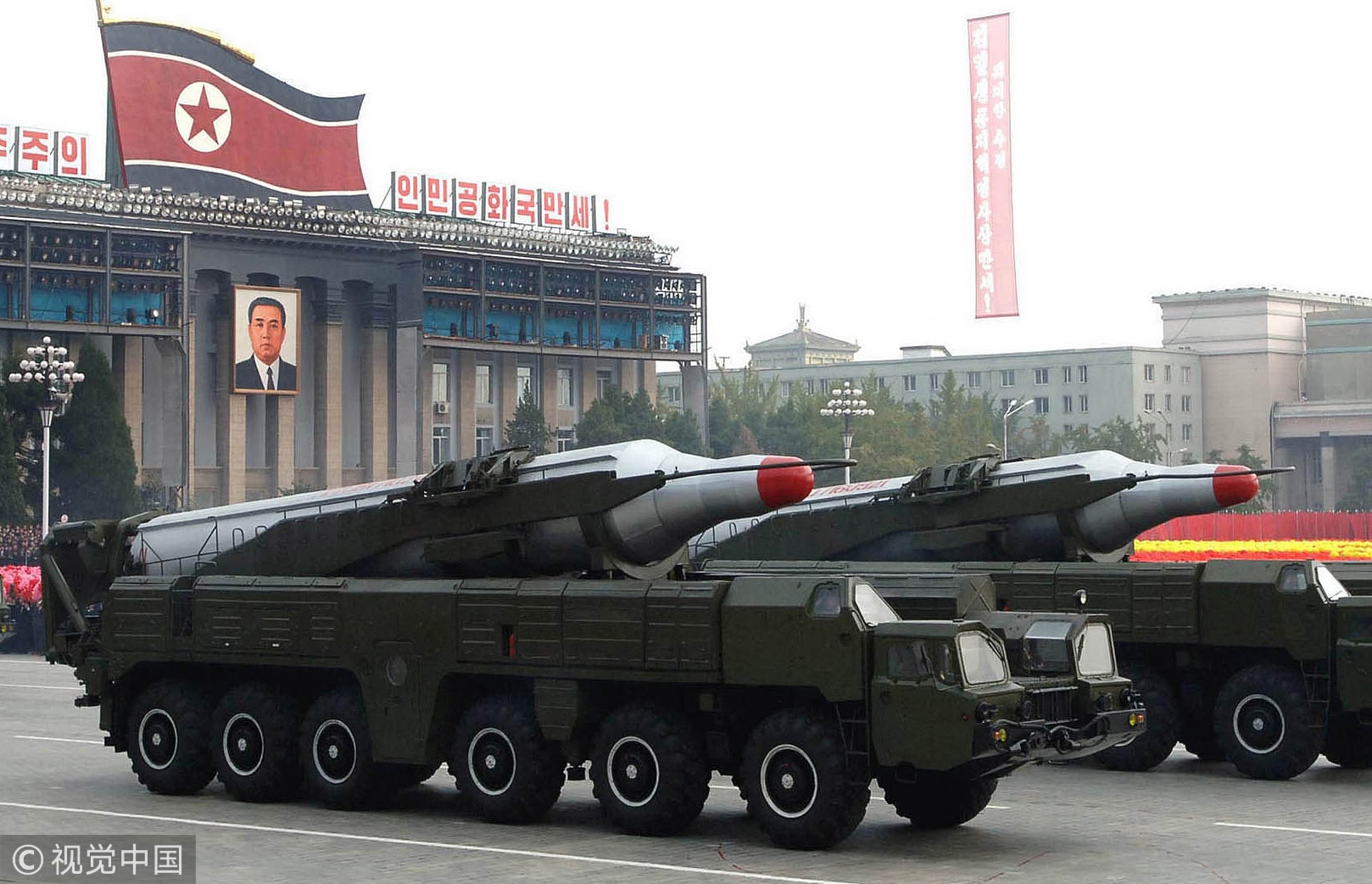
Missile-carrying trucks are driven in a massive military parade to mark the 65th anniversary of the DPRK's ruling Workers Party at the Kim Il Sung Square in Pyongyang, Oct.10, 2010. / VCG Photo
Missile-carrying trucks are driven in a massive military parade to mark the 65th anniversary of the DPRK's ruling Workers Party at the Kim Il Sung Square in Pyongyang, Oct.10, 2010. / VCG Photo
The popular narrative, as portrayed in the Western media, has made it nearly impossible to imagine a semblance of normalcy in the country that is home to over 25 million people; to imagine that people from the DPRK are in fact people like their counterparts everywhere else and can lead a normal life.
This is the sort of Western preconceptions about the DPRK that best-selling author Loretta Napoleoni attempts to challenge in her latest book, “North Korea: The Country We Love To Hate.”
Napoleoni, 63, an Italian by birth but who now divides her time between the US and UK is known for her critique of the West and its policies through her works spanning 15 years.
The book may just be one of the first attempts to offer an alternative perspective on the DPRK, which could possibly be expedited through a positive outcome of Trump-Kim talks.
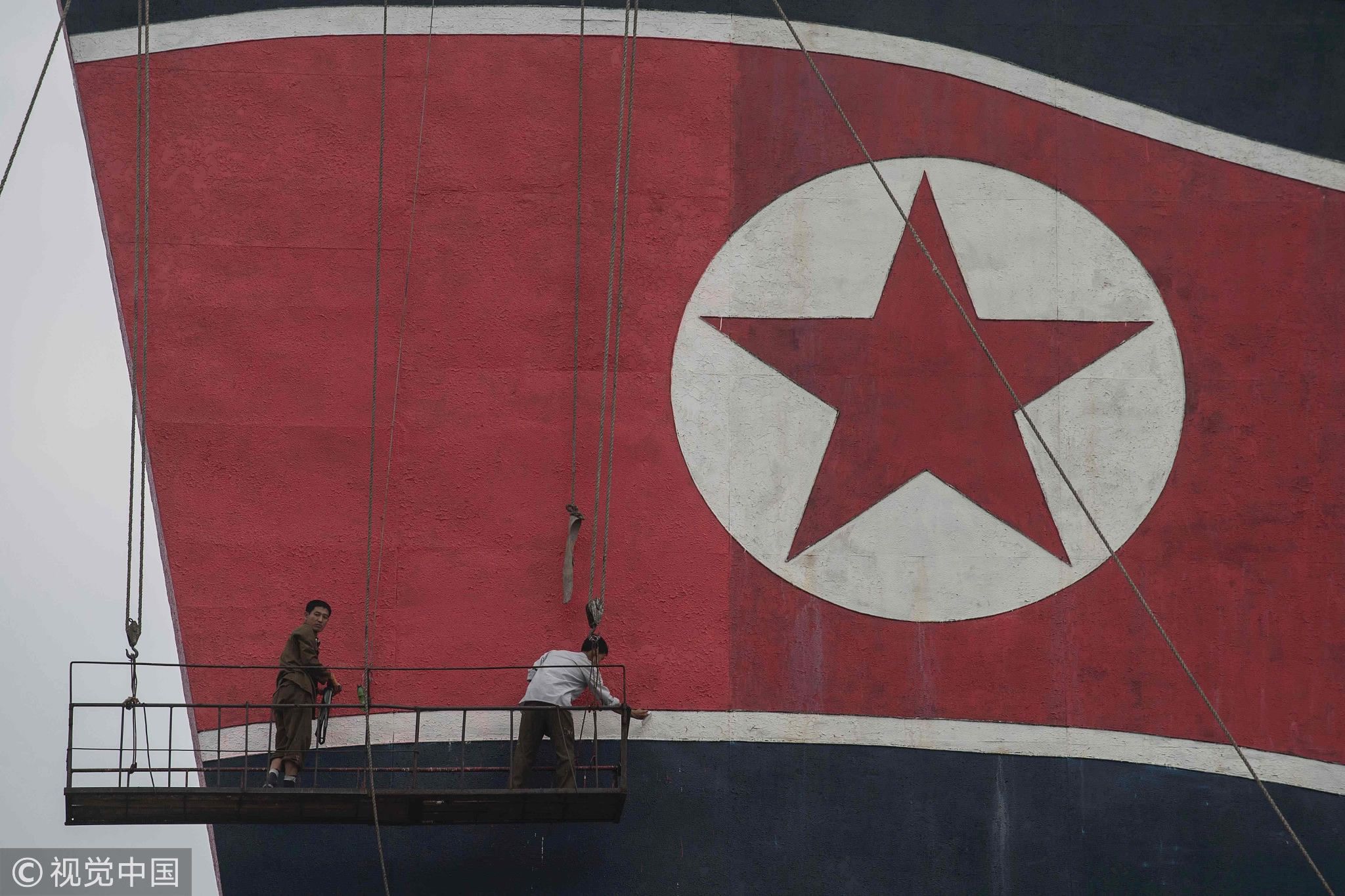
Workers paint a DPRK flag atop a building on Kim Il Sung square, July 7, 2016. / VCG Photo
Workers paint a DPRK flag atop a building on Kim Il Sung square, July 7, 2016. / VCG Photo
'North Koreans have fun, they are like us'
One of the chapters in her latest book is aptly titled “Fun and Ordinary Life in North Korea.”
“North Koreans really enjoy partying. They like music, karaoke; they like drinking and they absolutely love dancing. So there's a lot going on. They go to work, they fall in love, they have parties at home, they go to cinema. They are very much people like us and not different,” Napoleoni told CGTN Digital in an exclusive interview on Skype from Montana, US.
“Of course, everything is much more simple and do not have the complexity of life in the West but that doesn’t mean the Koreans don’t laugh or don’t have a good time as we do. They go to the beach, they go skiing, they go for walk, they go hiking exactly like us,” she added, offering a narrative that goes beyond the stereotype of a repressed population.
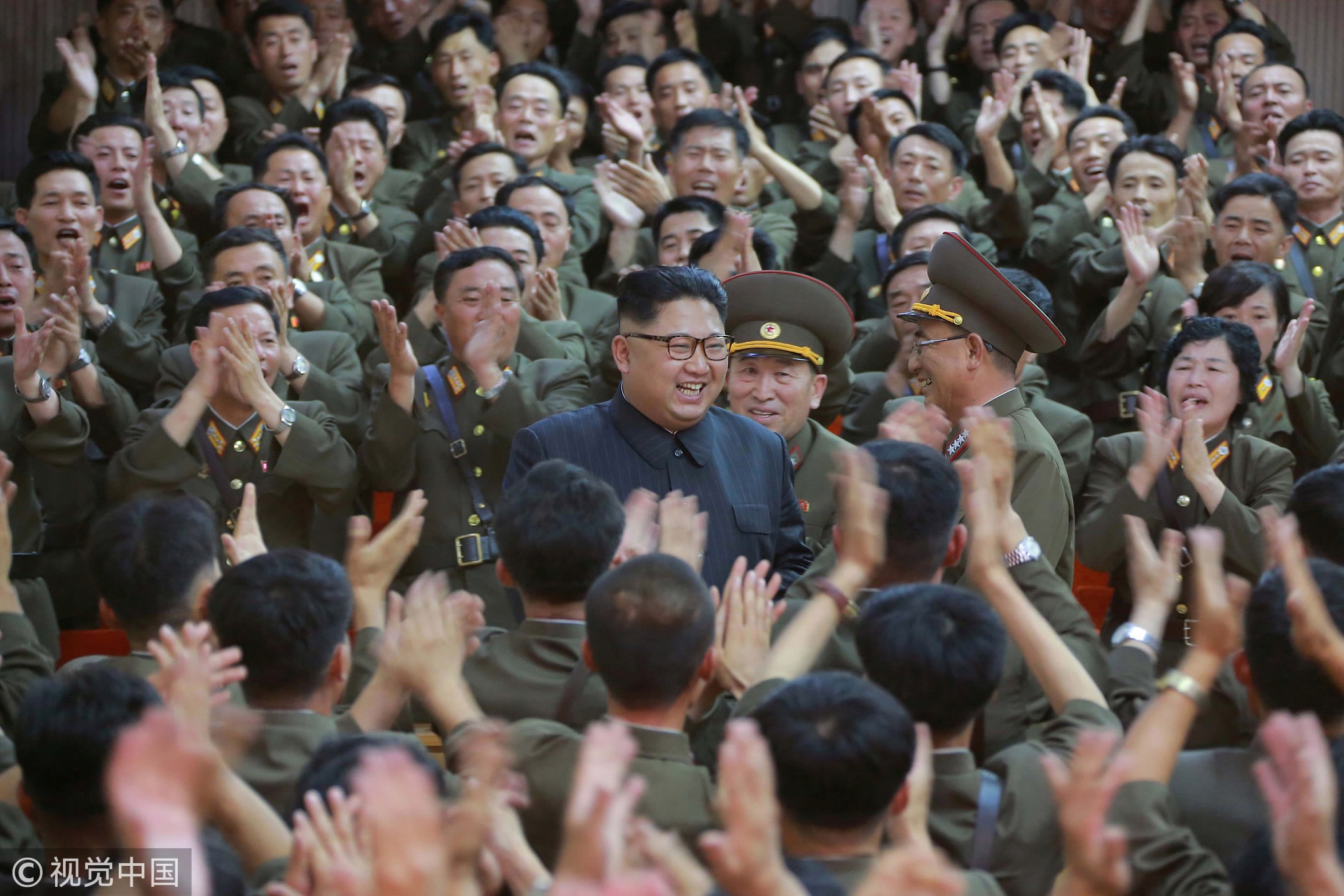
DPRK leader Kim Jong Un inspects the Command of the Strategic Force of the Korean People's Army (KPA) in an unknown location in the DPRK. / VCG Photo
DPRK leader Kim Jong Un inspects the Command of the Strategic Force of the Korean People's Army (KPA) in an unknown location in the DPRK. / VCG Photo
The book is a captive account of a country central to world politics and yet little understood. It offers an insider view of its people and its leader whose self-image is radically different to the one perpetuated in the international media.
Napoleoni’s previous books include Modern Jihad (2003), Terror Inc. (2004), Insurgent Iraq (2005), Terror Incorporated (2005), Rogue Economics (2008), Terror and the Economy (2010) and the best-seller Islamist Phoenix (2014), all of which established the author as an expert on terror financing and money laundering.
She also authored Maonomics (2011) on China’s economic miracle, which received the Singapore National Critics Choice's best non-fiction award in economics.
Video Editors: Chen Shi and Anosi Wang
Director: Abhishek G Bhaya






